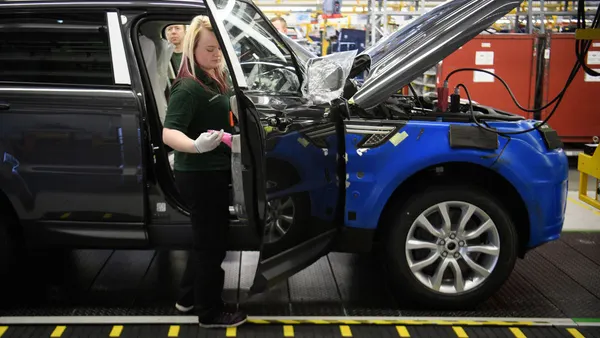Dive Brief:
- Unilever has cut costs by $1.5 billion through sustainable sourcing since 2008, according to the company's February earnings call presentation. Unilever executives said they see a pattern — up front sustainability investments very often result in long-term discounts, CEO Alan Jope said.
- Unilever's goals for using renewable electricity in its operations were achieved a year early, and the savings from the resulting procurement contracts for "green electricity" have been "tremendous," Jope said. Increased crop yields from sustainable agriculture practices are producing similar cost advantages.
- The company expects the cost of recycled plastics to eventually drop below the price of virgin plastics, as recycling systems are implemented across the globe. Jope said Unilever's transition to recycled plastics will result in cost benefits over time, putting current premiums for recycled plastic between 1% and 10%.
Dive Insight:
What's the cost of sustainability? The exact answer might be tricky, but for Unilever, it depends on the risk-benefit assessment. While the immediate costs might be high to transition to green electricity, recyclable plastics, and sustainable sourcing and agriculture, the long-term cost savings might just win out.
"So I find it hard to answer the question, what's the cost of sustainability, because we see it as a benefit where sometimes there are initial cost premiums that we need to work our way through," Jope said.
The ultimate cost advantages can be strong enough to drive companies to commit to sustainability practices, as can the consequences of not committing to sustainability.
CDP estimates $120 billion in environmental risks to the supply chain over the next five years. That potential risk has spurred companies to garner more control over and visibility into their supply streams by implementing eco-friendly practices and requesting more information and action from suppliers.
Unilever decided to tie supplier emission tracking to invoicing to reduce its supply chain carbon footprint. Walmart announced Project Gigaton in 2017 to reduce scope 3 emissions and has signed up more than 2,300 suppliers since the program's induction. And Target set an emissions-reduction goal of 30% by 2023, committing to bring along 80% of its suppliers, too.
In the industry, Unilever is viewed as a leader in sustainable business, and its actions have the potential to set the model for other companies and supply chains to follow.
Unilever said in 2019 it would reduce use of virgin plastic and increase collection and recycling of plastic packaging. And in June, Unilever set a goal to reach net-zero emissions from its products by 2039, also to make its supply chain deforestation-free by 2023.
"Sustainable practices save us money," said Jope.













